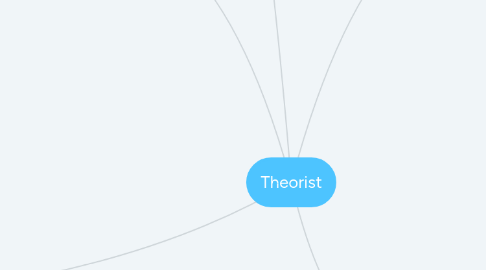
1. social cognitive
1.1. bandura
1.1.1. people learn from observing others and radually acquire control over their own behaviour
1.1.2. observational learning (imitation/modelling) -learning occurs when individuals observes and imitate others' behaviour.
1.1.3. four elements in observational learning 1. attentional phase 2. retention phase 3. motor reproduction phase 4. motivation phase
2. behaviourism
2.1. where both the drives that initiate behaviour and the specific behaviour motivated by those drives are learned through our interaction with the environment.
2.2. parlov
2.2.1. classical conditioning -dog/bell/salivated
2.3. watson
2.3.1. classical conditioning -11 month baby, Albert/rat/ligthning
2.4. thorndike
2.4.1. learning is explained by connections that are formed between stimuli and responses, these connections occur through trial and error
2.4.2. laws of learning -law of readiness -law of exercise -law of effect
2.5. skinner
2.5.1. operant conditioning (instrumental conditioning) -learning to bahave in certain ways we operate on the environment -individual must first make the desired response and then a "reward" is provided -the reward reinforces the response and makes it more likely to recur -respond to stimulus-produce pleasant consequences-respond the same way next time when re-encounter the stimulus -thus learning occurs when voluntary bahviour is strengthened/weakened by consequences/antecedents
3. humanism
3.1. to understand behaviour from the POV of the behaver rather than the observer. to change another person's behaviour it is necessary to modify his belief/perception. when he sees things differently he will behave differently.
3.2. maslow
3.2.1. self-actualization -a child learns because he is inwardly driven/derives his reward from the sense of achievement that having learned something affords. -intrinsic reward: rewards within oneself, satisfaction of needs -education is about creating a need within the child or instilling the child self-motivation
3.2.2. Maslow's Hierarchy of Needs: Maslow's Hierarchy of motivation -L1: physiological needs: hunger/thirst/sleep -L2: safety needs: predictable & orderly world -L3: love & belonginess: seek warm & friendly relationship -L4: self-esteem needs: achievement/competence/confidence -L5: self-actualization: full use & expression of talents, capacities & potentialities
3.3. carl rogers
3.3.1. -quality of personal involvement -self-initiated -pervasive -evaluated by the learner -essence of meaning
4. contructivism
4.1. piaget
4.2. vygotsky
5. cognitive
5.1. kohler
5.1.1. experiment on chimps -problem solving using the process of insight (comes to mind)
5.2. piaget
5.3. gagne
5.3.1. condition of learning: types of learning -verbal information -intellectual skills -cognitive strategies -motor skills -attitudes
5.3.2. types of learning: intellectual skills -signal learning -stimulus-response -chaining (procedure following) -verbal association (use of terminology) -discrimination learning -concept learning -rule learning -problem solving
5.3.3. the nine instructional events (maximize learning) 1. gain attention 2. inform learners of objectives 3. stimulate recall of prior learning 4. present the content 5. provide learning guidance 6. elicit performance (practice) 7. provide feedback 8. assess performance 9. enhance retention and transfer to the job
5.4. ausubel
5.4.1. meaningful verbal learning -meaning is created through some form of representational equivalence between language (symbols) and mental context. two process involved: -reception: employed in meaningful verbal learning -discovery: involved in concept formation & problem solving
5.4.2. meaningful reception theory _concerned on how students learn large amounts of meaningful material from verbal/textual presentations in school.
5.4.3. subsumption theory 1. correlative theory 2. derivative subsumption advance organizers
5.5. bruner
5.5.1. discovery learning -focused on "how" to learn, not "what" to learn -guided discovery: preschool children -unguided discovery: primary/secondary, manageable/priductive/practical
5.5.2. Four components: Theory of Discovery Learning -curiosity & uncertainty -structure of knowledge -sequencing -motivation
